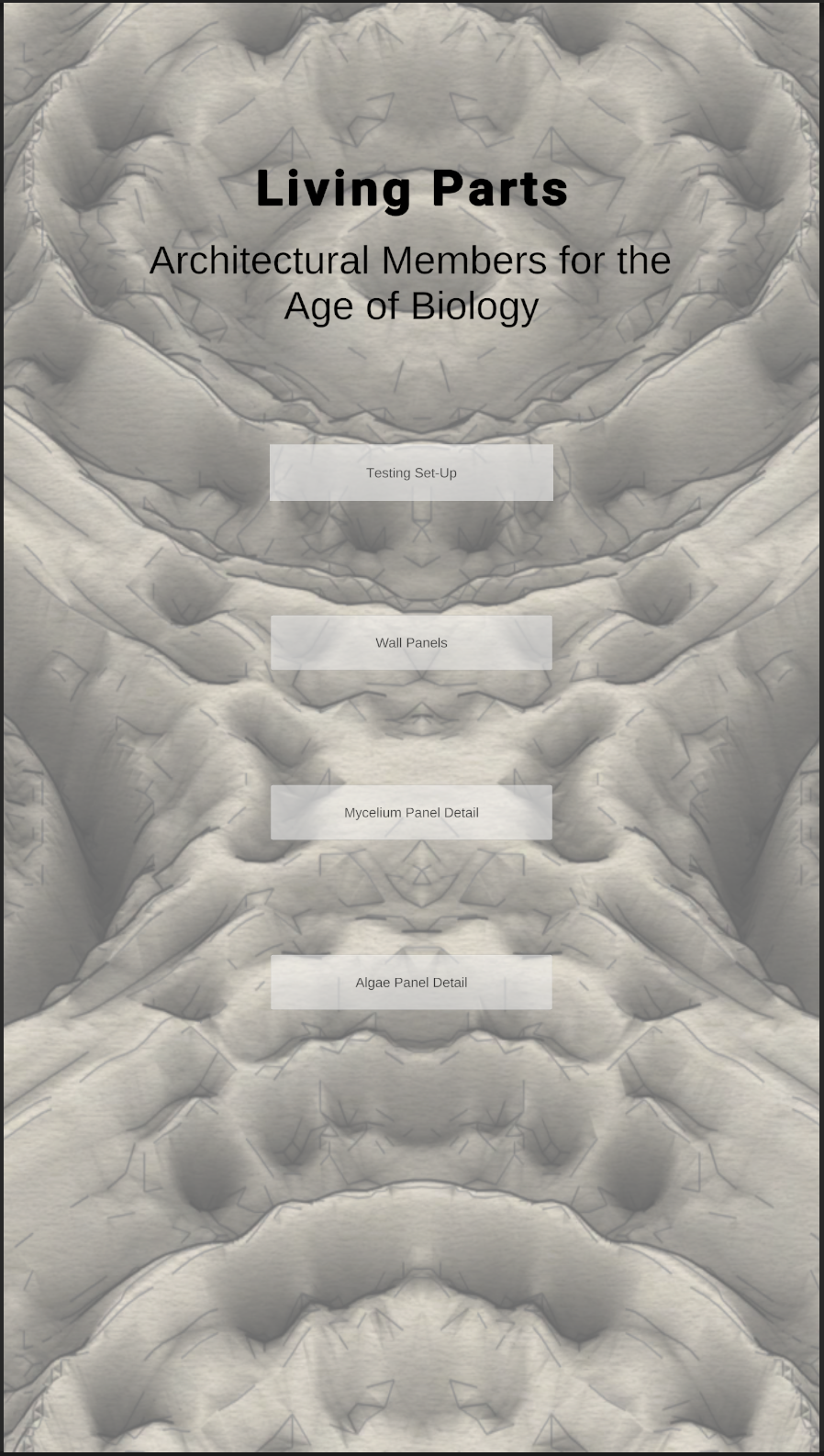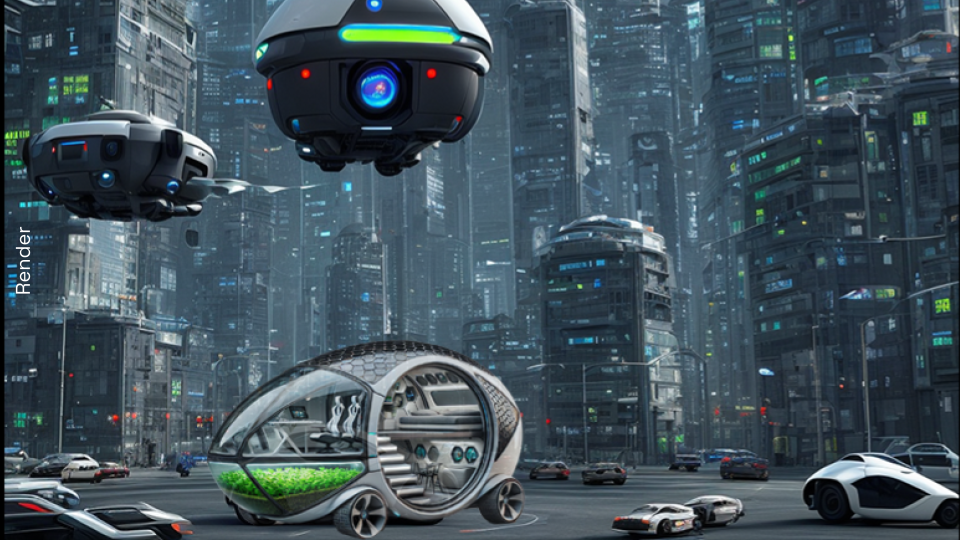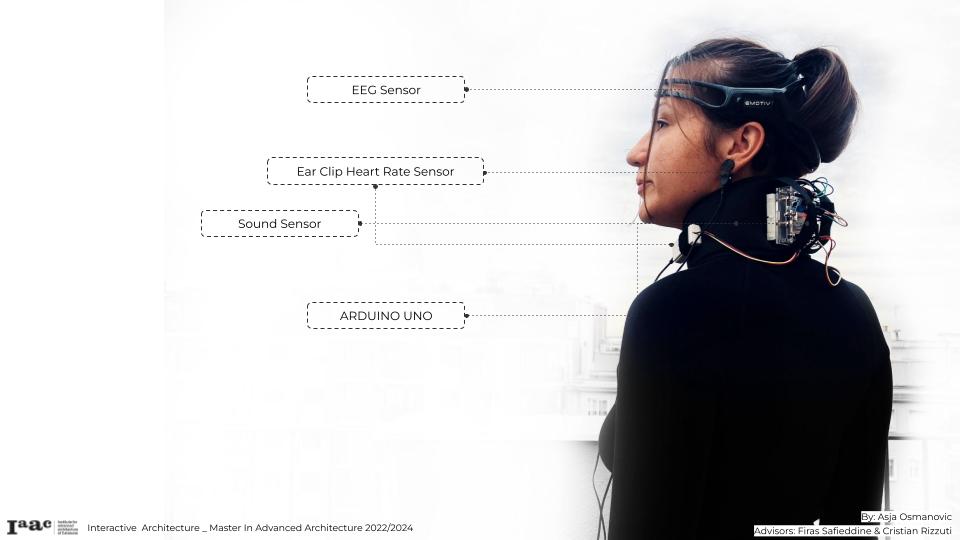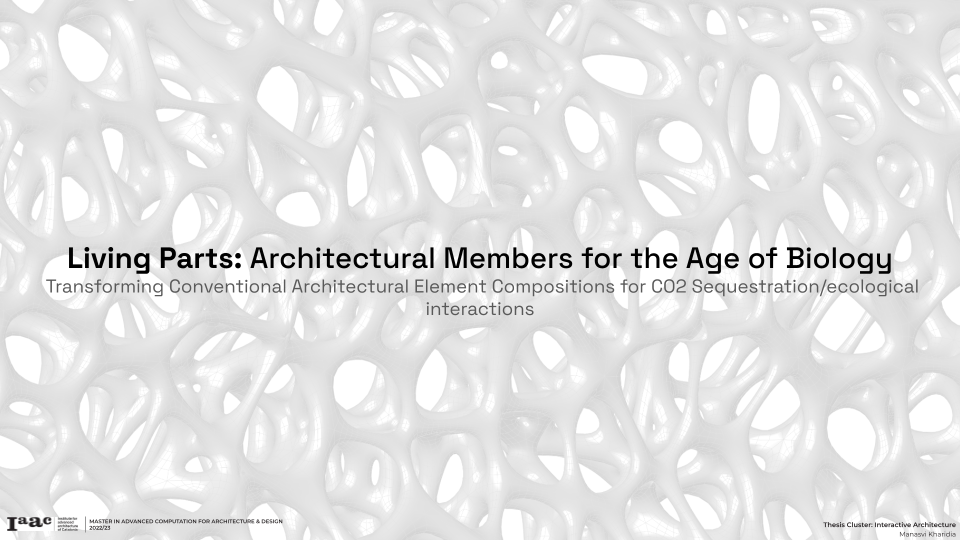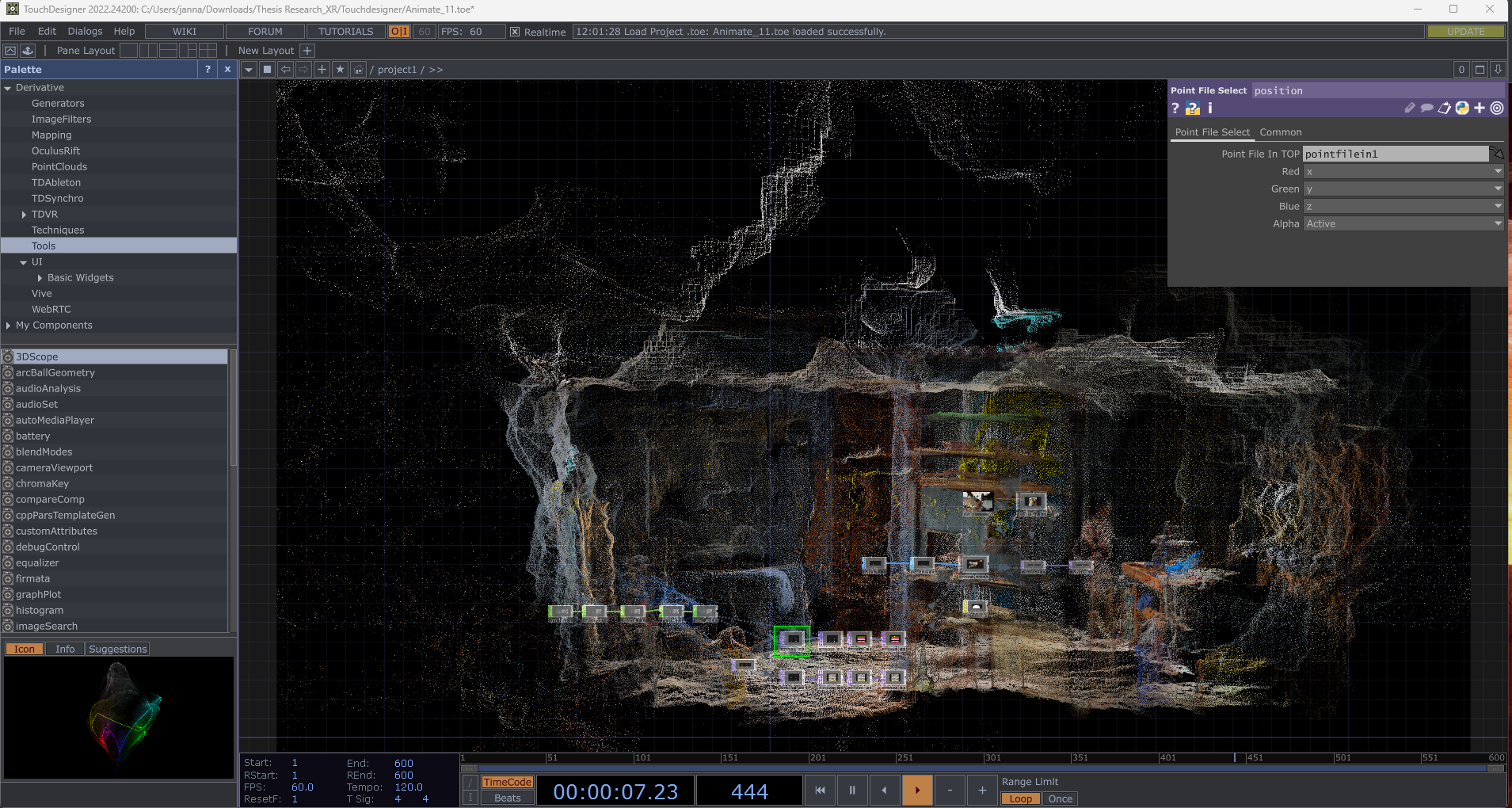Augmented & Mixed Reality
This studio explores the possibility of using AR in architecture with Unity. Living parts is a thesis focusing on the use of Biomaterials in Architectural Elements to sequester environmental carbon dioxide. Unity is used here to map the data from the CO2 sensor to Unity and see the data collected with the help of a … Read more

